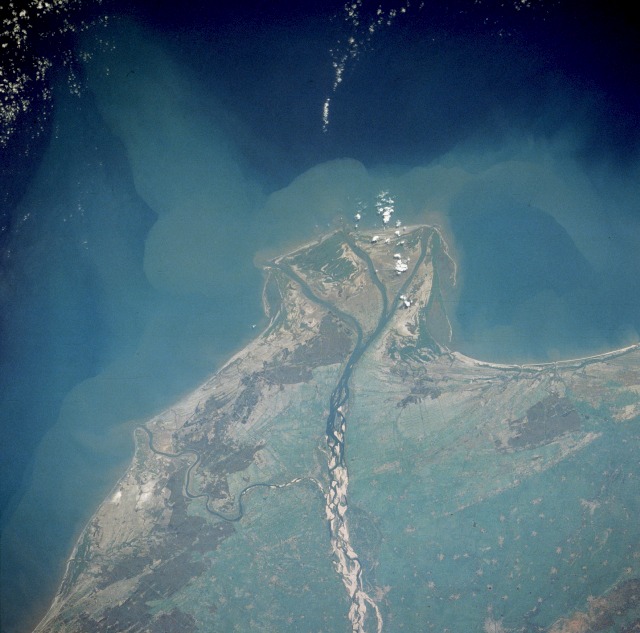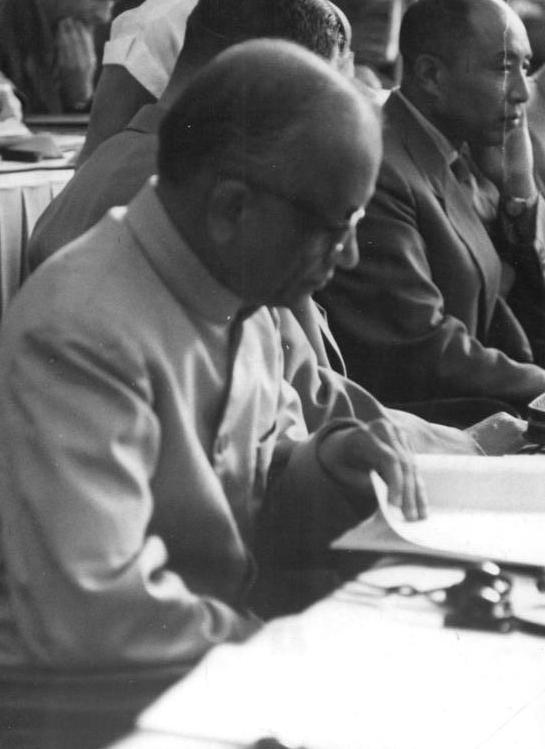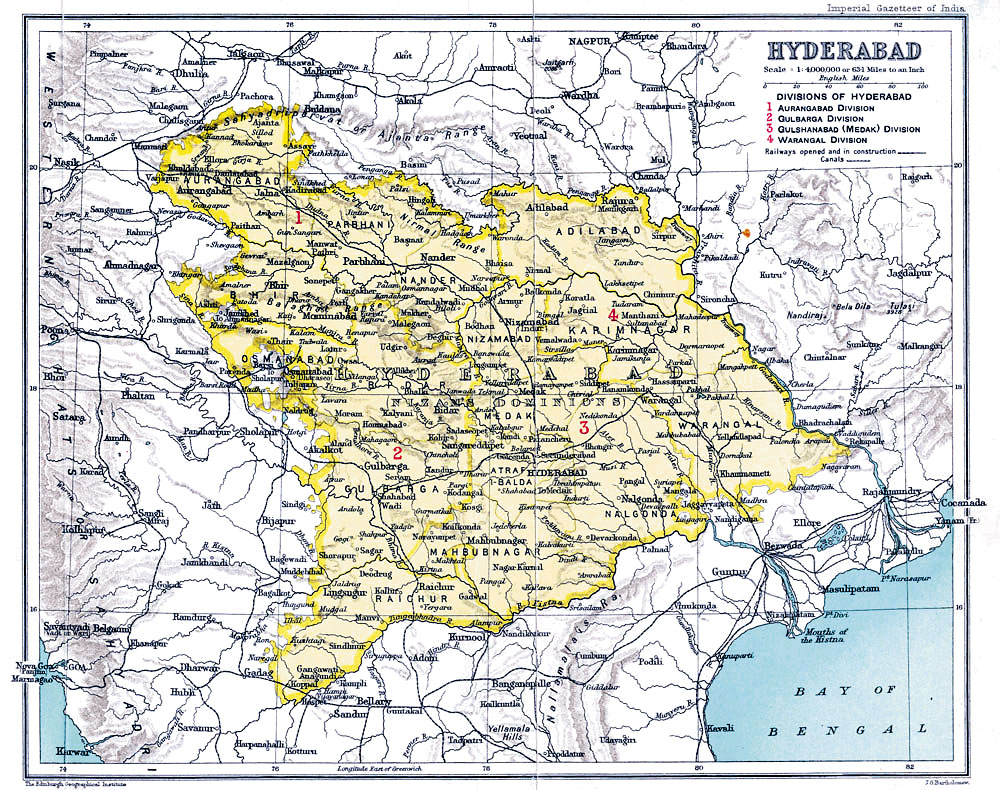|
Makineni Basavapunnaiah
Makineni Basavapunnaiah (Telugu language, Telugu: మాకినేని బసవపున్నయ్య; 14 December 1914 – 12 April 1992) was an Indian Communist leader who was a member of Politburo of the Communist Party of India (Marxist) (CPI (M)). He was also the editor of the central organ of CPI (M), ''People's Democracy'' magazine.Basavapunnaiah Makineni, Luminaries of 20th Century, Part I, Potti Sriramulu Telugu University, Hyderabad, 2005, pp: 375. He was a member of the Rajya Sabha for 14 years from 3 April 1952 to 2 April 1966. Biography He was born to Shri Venkatappaiah in Toorpupalem village near Repalle in Guntur district, Andhra Pradesh. He studied in his village, Repalle and Machilipatnam. He has graduated from Andhra Christian College, Guntur in 1936. Makineni Basavapunnaiah was influenced by the upsurge in the Indian Independence Movement in the early 1930s. He grew increasingly disillusioned by the policies of the then Indian National Congress, Congr ... [...More Info...] [...Related Items...] OR: [Wikipedia] [Google] [Baidu] |
Guntur District
Guntur district is one of the twenty six districts in the Coastal Andhra region of the Indian state of Andhra Pradesh. The administrative seat of the district is located at Guntur, the largest city of the district in terms of area and with a population of 670,073. It has a coastline of approximately on the right bank of Krishna River, that separates it from Krishna district and NTR district. It is bounded on the south by Bapatla district and on the west by Palnadu district. It has an area of and with a population of 20,91,075 as per 2011 census of India. The district is often referred to as the ''Land of Chillies''. It is also a major centre for agriculture, education and learning. It exports large quantities of chillies and tobacco. Etymology The district derives its name from its district headquarters, Guntur. There are several opinions on the meaning and origin of the word Guntur. The word owes its origin to words like gundu (a rock), gunta (a pond) and kunta (1/3 o ... [...More Info...] [...Related Items...] OR: [Wikipedia] [Google] [Baidu] |
Guntur
Guntur () is a city and the administrative headquarters of Guntur district in the Indian state of Andhra Pradesh. Guntur is spread across 168.49 km square and is the third-largest city in the state. It is situated to the west of the Bay of Bengal, on the Eastern Coastal Plains. The city is the heartland of the state, located in the centre of Andhra Pradesh and making it a central part connecting different regions. It serves as a major hub for exports chilli, cotton and tobacco and has the largest chili market yard in Asia. It is a major transportation, education and commercial hub for the state. Guntur city is a municipal corporation and also the headquarters of Guntur East and Guntur West mandals in Guntur revenue division. The city region is a major part of Amaravati Metropolitan Region. census of India the city is the third most populous in the state with a population of 743,354. It is classified as a ''Y-grade'' city as per the Seventh Central Pay Commission. ... [...More Info...] [...Related Items...] OR: [Wikipedia] [Google] [Baidu] |
Telugu Politicians
Telugu may refer to: * Telugu language, a major Dravidian language of India *Telugu people, an ethno-linguistic group of India * Telugu script, used to write the Telugu language ** Telugu (Unicode block), a block of Telugu characters in Unicode See also * Telugu cinema * Telugu cuisine * Telugu culture (other) * Telugu states Telugu states are the Indian states of Andhra Pradesh and Telangana in southeastern India. An ethno-region of Telugu People, they as a collective are bordered by Maharashtra to the north, Karnataka to the west, Odisha, Chhattisgarh to the north ... * * {{disambiguation Language and nationality disambiguation pages ... [...More Info...] [...Related Items...] OR: [Wikipedia] [Google] [Baidu] |
People From Guntur District
A person (plural, : people) is a being that has certain capacities or attributes such as reason, morality, consciousness or self-consciousness, and being a part of a culturally established form of social relations such as kinship, ownership of property, or legal obligation, legal responsibility. The defining features of personhood and, consequently, what makes a person count as a person, differ widely among cultures and contexts. In addition to the question of personhood, of what makes a being count as a person to begin with, there are further questions about personal identity and self: both about what makes any particular person that particular person instead of another, and about what makes a person at one time the same person as they were or will be at another time despite any intervening changes. The plural form "people" is often used to refer to an entire nation or ethnic group (as in "a people"), and this was the original meaning of the word; it subsequently acquired its us ... [...More Info...] [...Related Items...] OR: [Wikipedia] [Google] [Baidu] |
1992 Deaths
Year 199 ( CXCIX) was a common year starting on Monday (link will display the full calendar) of the Julian calendar. At the time, it was sometimes known as year 952 ''Ab urbe condita''. The denomination 199 for this year has been used since the early medieval period, when the Anno Domini calendar era became the prevalent method in Europe for naming years. Events By place Roman Empire * Mesopotamia is partitioned into two Roman provinces divided by the Euphrates, Mesopotamia and Osroene. * Emperor Septimius Severus lays siege to the city-state Hatra in Central-Mesopotamia, but fails to capture the city despite breaching the walls. * Two new legions, I Parthica and III Parthica, are formed as a permanent garrison. China * Battle of Yijing: Chinese warlord Yuan Shao defeats Gongsun Zan. Korea * Geodeung succeeds Suro of Geumgwan Gaya, as king of the Korean kingdom of Gaya (traditional date). By topic Religion * Pope Zephyrinus succeeds Pope Victor I, as th ... [...More Info...] [...Related Items...] OR: [Wikipedia] [Google] [Baidu] |
1914 Births
This year saw the beginning of what became known as World War I, after Archduke Franz Ferdinand of Austria, heir to the Austrian throne was assassinated by Serbian nationalist Gavrilo Princip. It also saw the first airline to provide scheduled regular commercial passenger services with heavier-than-air aircraft, with the St. Petersburg–Tampa Airboat Line. Events January * January 1 – The St. Petersburg–Tampa Airboat Line in the United States starts services between St. Petersburg and Tampa, Florida, becoming the first airline to provide scheduled regular commercial passenger services with heavier-than-air aircraft, with Tony Jannus (the first federally-licensed pilot) conveying passengers in a Benoist XIV flying boat. Abram C. Pheil, mayor of St. Petersburg, is the first airline passenger, and over 3,000 people witness the first departure. * January 11 – The Sakurajima volcano in Japan begins to erupt, becoming effusive after a very large earthquake ... [...More Info...] [...Related Items...] OR: [Wikipedia] [Google] [Baidu] |
1964 Split In The Communist Party Of India
In 1964 a major split occurred in the Communist Party of India. The split was the culmination of decades of tensions and factional infighting. When India became independent in 1947, differences arose of how to adapt to the new situation. As relations between the Nehru government and the Soviet Union improved, a faction that sought cooperation with the dominant Indian National Congress emerged within CPI. This tendency was led by S.A. Dange, whose role in the party hierarchy became increasingly controversial. When the Sino-Indian War broke out in 1962 Dange's opponents within CPI were jailed, but when they were released they sought to challenge his leadership. In 1964 the party was finally divided into two, with the left faction forming the Communist Party of India (Marxist). The split had a lot of regional variations. It also impacted other organizations, such as trade union and peasant movements. The split has been studied extensively by scholars, who have sought to analyze the v ... [...More Info...] [...Related Items...] OR: [Wikipedia] [Google] [Baidu] |
USSR
The Soviet Union,. officially the Union of Soviet Socialist Republics. (USSR),. was a transcontinental country that spanned much of Eurasia from 1922 to 1991. A flagship communist state, it was nominally a federal union of fifteen national republics; in practice, both its government and its economy were highly centralized until its final years. It was a one-party state governed by the Communist Party of the Soviet Union, with the city of Moscow serving as its capital as well as that of its largest and most populous republic: the Russian SFSR. Other major cities included Leningrad (Russian SFSR), Kiev ( Ukrainian SSR), Minsk ( Byelorussian SSR), Tashkent (Uzbek SSR), Alma-Ata (Kazakh SSR), and Novosibirsk (Russian SFSR). It was the largest country in the world, covering over and spanning eleven time zones. The country's roots lay in the October Revolution of 1917, when the Bolsheviks, under the leadership of Vladimir Lenin, overthrew the Russian Provisional Gove ... [...More Info...] [...Related Items...] OR: [Wikipedia] [Google] [Baidu] |
Joseph Stalin
Joseph Vissarionovich Stalin (born Ioseb Besarionis dze Jughashvili; – 5 March 1953) was a Georgian revolutionary and Soviet political leader who led the Soviet Union from 1924 until his death in 1953. He held power as General Secretary of the Communist Party of the Soviet Union (1922–1952) and Chairman of the Council of Ministers of the Soviet Union (1941–1953). Initially governing the country as part of a collective leadership, he consolidated power to become a dictator by the 1930s. Ideologically adhering to the Leninist interpretation of Marxism, he formalised these ideas as Marxism–Leninism, while his own policies are called Stalinism. Born to a poor family in Gori in the Russian Empire (now Georgia), Stalin attended the Tbilisi Spiritual Seminary before joining the Marxist Russian Social Democratic Labour Party. He edited the party's newspaper, ''Pravda'', and raised funds for Vladimir Lenin's Bolshevik faction via robberies, kidnappings and protection ... [...More Info...] [...Related Items...] OR: [Wikipedia] [Google] [Baidu] |
Politburo
A politburo () or political bureau is the executive committee for communist parties. It is present in most former and existing communist states. Names The term "politburo" in English comes from the Russian ''Politbyuro'' (), itself a contraction of ''Politicheskoye byuro'' (, "Political Bureau"). The Spanish term ''Politburó'' is directly loaned from Russian, as is the German ''Politbüro''. Chinese uses a calque (), from which the Vietnamese (), and Korean ( ''Jeongchiguk'') terms derive. History The first politburo was created in Russia by the Bolshevik Party in 1917 during the Russian Revolution that occurred during that year. The first Politburo had seven members: Lenin, Zinoviev, Kamenev, Trotsky, Stalin, Sokolnikov, and Bubnov. During the 20th century, politburos were established in most Communist states. They included the politburos of the USSR, East Germany, Afghanistan, and Czechoslovakia. Several countries still have a politburo system in operation: China, North K ... [...More Info...] [...Related Items...] OR: [Wikipedia] [Google] [Baidu] |
Telangana Rebellion
The Telangana Rebellion popularly known as Telangana Sayuda Poratam (Telugu : తెలంగాణ సాయుధ పోరాటం) of 1946–51 was a communist-led insurrection of peasants against the princely state of Hyderabad in the region of Telangana that escalated out of agitations in 1944–46. Hyderabad was a feudal monarchy where most of the land was concentrated in the hands of landed aristocrats known as Doras in Telangana. Feudal exploitation in the region was more severe compared to others of India; the had complete power over the peasants and could subject them to agricultural slavery. Conditions worsened during the 1930s due to the Great Depression and a transition towards commercial crops. In the 1940s, the peasants started turning towards communism, organised themselves through the Andhra Mahasabha and began a rights movement. catalyzed by a food crisis that affected the region following the end of the Second World War, the movement escalated into a reb ... [...More Info...] [...Related Items...] OR: [Wikipedia] [Google] [Baidu] |
Communist Party Of India
Communist Party of India (CPI) is the oldest Marxist–Leninist communist party in India and one of the nine national parties in the country. The CPI was founded in modern-day Kanpur (formerly known as Cawnpore) on 26 December 1925. History Formation The Communist Party of India was formed on 26 December 1925 at the first Party Conference in Kanpur, which was then known as ''Cawnpore''. Its founders included M. N. Roy, his wife Evelyn Trent, Abani Mukherji, and M. P. T. Acharya. S.V. Ghate was the first General Secretary of CPI. There were many communist groups formed by Indians with the help of foreigners in different parts of the world, Tashkent group of Contacts were made with Anushilan and Jugantar the groups in Bengal, and small communist groups were formed in Bombay (led by S.A. Dange), Madras (led by Singaravelu Chettiar), United Provinces (led by Shaukat Usmani), Punjab, Sindh (led by Ghulam Hussain) and Bengal (led by Muzaffar Ahmed). Involvement in ... [...More Info...] [...Related Items...] OR: [Wikipedia] [Google] [Baidu] |


_1938.jpg)



